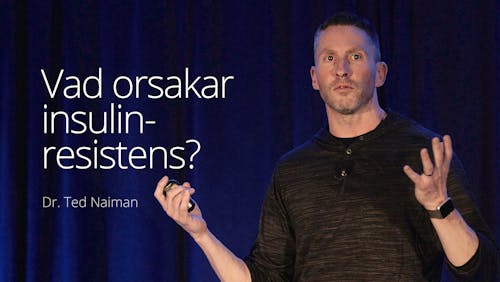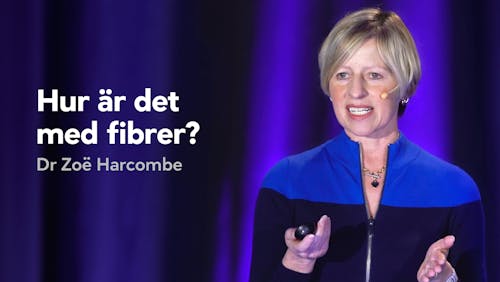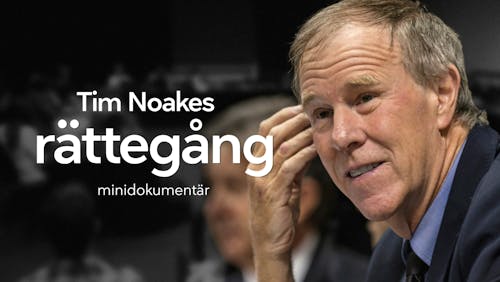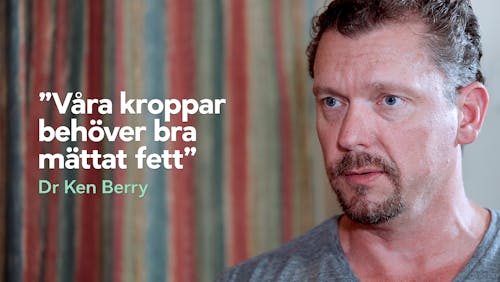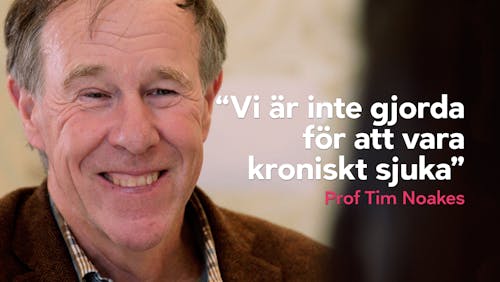She is also the executive director of the Nutrition Coalition and she’s and adjunct professor at New York University. And talking to her is a true experience, because you learn so much more about guidelines, about committees, about how decisions are made, about how evidence is either accepted or ignored and more importantly how that impacts our lives. I mean on the one hand, you can say how does that matter because I can still make my choices.
But no, these guidelines affect so many people, on so many different levels. And it’s important to hear her message about why that is and important to hear her message about how we can influence this and how we can make sure that these decisions are being based on evidence, and when there isn’t evidence there we need to know that.
And it’s not always success, we’re not always winning the battle to make guidelines more evidence based but as you’ll hear there is a progression towards that. So, it’s a fascinating interview and I wish I could interview her 10 more times, because there’s so much more information there, but I think you’re going to learn a lot from Nina Teicholz today.
So, enjoy this interview and if you want the full transcripts go to dietdoctor.com and you can also see all our other prior podcast interviews. So, enjoy this interview with Nina Teicholz. Nina Teicholz, thank you so much for joining me on the diet doctor podcast.
Nina Teicholz: It’s great to be here, thank you.
Bret: Well you have made quite a name for yourself over the years starting with the Big Fat Surprise. Your book really turned the politics and influence behind nutritional guidelines upside down and this has created a windfall of sort of a new way for people to look at the guidelines and to say maybe they’re not as clear cut and evidence based as we thought.
Now talking about the guidelines in a way seems a little counterintuitive for a low-carb community, because the reason people are going low-carb and doing well and feeling better low-carb, is because they’re going outside the guidelines and they realize they can do better than the guidelines, but yet the guidelines are still very important.
So, tell us a little bit about why guidelines are so important and your journey in understanding the faults in the process behind them.
Nina: Well, it’s such a good question because most of us, you know, even when we were following the guidelines, we don’t even realize they’re important. I mean we don’t go to a .gov website and find out what to eat and I didn’t think they were so influential either, until after my book, I started to– I just got completely fascinated with them, because there was– the guidelines are issued every five years by the US government, jointly by USDA and NHS, and I looked at the 2015 expert report that came out and I read all 470 something pages of it, which I wish upon nobody.
Bret: How long did that take?
Nina: I don’t know. But I looked actually at every single study that they were using to justify the guidelines and I realized that there’s no science there. Like where’s all the science that I’ve spent the last decade of my life, reading, studying? None of those studies were in there. And then I went back and looked at previous guidelines and their expert reports and I was like, nobody’s ever looked at any of these studies… what’s the deal with our guidelines?
So, there is this appalling lack of science in the rigorous science in the guidelines and that is something that I think, you know, it’s worrisome, I mean why does a low-carb person care at all about that? So, we have this terrible government policy but you know, I’m low-carb, I fixed my health, I have good foods, my family is healthy and we’re all sort of my little world is healthy, but here’s what I found out about the guidelines.
They control a tremendous amount of– they have this kind of straight jacket on so much of our economy and our professional, medical and nutritional advice. So one way they control, that people should care about is that, you know– the meal your child gets at school, that’s controlled by the guidelines, only 1% milk and 55% carbohydrates and half of those carbohydrates still have to be refined.
So your kid is getting maybe donuts and that’s okay with the guidelines, because they have to include refined grains because they are the only ones enriched and fortified. And one of the things about the guidelines that is shocking is that they’re nutritionally insufficient, meaning they don’t meet adequacy goals. Okay, so school lunches, maybe your kid goes to private school, so it doesn’t matter.
What about if you go to the hospital? That food is controlled by the guidelines. You can find many pictures of people showing their so-called diabetic meal in a hospital and it’s like 75% carbohydrates.
Bret: I think as a cardiologist, I’ve seen that a million times, it feels like
Nina: Yeah and you go to the hospital and you get sicker and you don’t have somebody to bring you food, well you’re sort of stuck, right.
Bret: And the guidelines dictate what the hospitals can serve?
Nina: Well, it comes down to the guidelines are downloaded by every medical association. So when the medical association establishes what’s in the hospitals, or they can set out recommendations, it’s very hard to then go up against that, but I mean one thing the guidelines are really downloaded by dietician’s society, nutritionist society, nurses, doctors and so they’re just teaching the guidelines.
So, and they’re the ones in control of the diet. The diet summer camp, the diet that you send your kid to. All the cafeteria food, you know, is pretty much controlled by the guidelines and big, big institutions. What about the military, that’s supposed to protect us? There’s a study out that people actually gain weight while they’re in the military.
Bret: While they’re being so physically active in the military!
Nina: Well they’re like doing amazing, can’t blame that on lack of exercise.
Bret: Right.
Nina: And their whole system for trying to get people healthy are all based on the guidelines. Again, you know they have a stoplight system, red, green and blue, and you know big red stoplight in front of meat, this is going to bring you down, big green in front of pasta, this is energy food, that fuels you for being a warrior.
Well, you know our military is really fighting an obesity problem, and these are the people that we need, or maybe you have members of your own family in the military. Or if you care about, you know, women and infant children, poor people… I mean they get those wicker baskets, there’s no meat in them at all. They’ve gotten rid of meat, no meat, no chicken, no fish, no kind of animal protein.
Bret: Really!
Nina: Nothing. Beans and peanut butter is what they’re supposed to live on, and I’m sorry a carton of eggs and some milk and cheese, but there’s no meat in the wicker baskets. So, you know I could go on. It’s very hard even if you’re committed to your diet and you feel like, I’ve got it, and you know, anybody you talk to, any doctor you talk to, you go to your doctor and your doctor is trying to get you off that diet. Or you go to your school and try to get a better lunch program there and they tell you, you know, you’re crazy.
Bret: So, it all goes upstream to the USDA guidelines.
Nina: Everybody has downloaded the guidelines to their professional associations and those professional people work in all of our institutions and then they deliver the guidelines and they make it very hard for anybody to generate change. So, you know people who– even medical doctors, who want to teach low-carb diet and they’re part of a large medical practice, they’re forbidden from doing that, they literally can’t do it, because the medical practice fears liability because they’re not teaching the gold standard dietary guidelines.
Bret: Right, liability and decreased funding that people would pull their funding if your diabetes education program is sponsored by the ADA, you could lose funding potentially by going low-carb, so yeah it is amazing to hear you describe how far reaching these guidelines are, but here’s the thing. Anybody could say, ”Look I went low-carb, I’ve felt fantastic, the guidelines don’t work for me”.
But then how can we say the guidelines are actually truly faulty, and that’s where it took, not a scientist, not a doctor, it took you, a journalist, to come in and say the science is wrong. So, tell us, you’ve been sort of criticized for not being a scientist. Why should we believe you because you’re not a scientist, but yet I think it gives you more strength, as not being a scientist, to come in and say, ”Look at this.” So tell us about how you see your role in pointing out the faulty evidence being used and the evidence being ignored from your background as a journalist.
Nina: Yeah, this is a field, not just journalists, but people really outside of the area of nutrition science have been able to make progress, because inside the world of nutrition it’s a– there’s a kind of very strong orthodoxy about what is a correct diet and you really cannot challenge that.
One of the things that my book documents is all the scientists who did their own field orthodoxy, and their careers, you know their careers just disappear, research grants go away, and they don’t get invited to conferences anymore, so they’re just sort of ostracized.
And then young people coming up see that and they’re careful to stay closely within the orthodoxy and not challenge it, and so you see that the movement that has been made in this field really comes from outsiders, it’s had to. We’re the only people, who can analyze, and who have freedom to really look at the science. And you would say, well, why a science journalist, rather than–? Why not a PhD or why not a doctor? And journalists are people like, what we do is we research.
Bret: Right.
Nina: I mean a doctor would be seeing patients all day, and you know, if I had to spend like 10 years of my life, actually just sitting in a hole, cave and just researching and reading papers, so as a journalist, I have the ability to call up people and interview them, that’s something that’s quite unique. And I can hear about their studies and I can hear the inside story of their study and I can hear about what the real thing– I’m not even going to publish in my book, but I need to know as background.
You just have a unique ability as a journalist to approach with objectivity and you have the time and tools to really do the research. And, you know, when I started I was a vegetarian, I mean I came with zero biases, I didn’t even think I was going to write the book that I ended up writing, I was going to write a book on trans fats.
So, you know, I just think that it’s just– and as a journalist you’re really trained to see all sides, all points of view, I mean, scientists are trained to do that too.
But as you know, you get that in any field, but the question about the guidelines, why did I take this deep dive into the guidelines and find out about the evidence based, was again, it was simply that they’re so powerful, they control so much of our food supply, and you know one thing I didn’t even mention before-hand, but even for low-carb people, the absence of food products we can buy, is because of the guidelines, like every food company wants to have– when you flip over a piece of any kind of packaged food, you look on the food fat panel… that all comes out of the guidelines.
Bret: Right.
Nina: And so they’re not making food for us because–
Bret: They’re targeting low fat specifically
Nina: That’s right, you want to see below this grams, especially saturated fats. But, I just felt like it was imperative to– if we have this really powerful policy, what is the science behind it? This is just kind of what I do. I like to dig into the science and one of the things is kind of fun about being– although a bit scary and also disillusioning, I’d say about being a journalist in this field is just that so much of nutrition science is so incredibly bad. I mean, I have to like, I don’t mean bad, I mean–
Bret: So what do you mean by bad?
Nina: You look at the data, you look at the conclusive– most doctors or people who read studies just look at the conclusions or they look at the discussion section. You really have to look at the data, because the data often say one thing and the scientist who’s trying to survive and do well in his field is saying something that completely denies the data.
Bret: Yeah.
Nina: has a conclusion that is completely the opposite. I can’t tell you the number of studies that I’ve read and one of the most famous ones I think it was the Pacific Rails study by Jeremiah Stamler. He did a study and it showed exactly, you know he was a colleague of Ancel Keys, and he really wanted to– a believer in the heart diet hypotheses– that saturated fat and cholesterol are bad for you. And his data showed that saturated fat and cholesterol were actually good for you and he wrote up his summary statement saying basically we’re ignoring this data because other studies show that saturated fat and cholesterol are good for you.
Bret: Right, and that shows a tremendous bias but also the pressure to sort of adhere with the common theory or the central dogma and not go against it, because as you documented in your book, those people who dare to try and publish something different than what was commonly believed frequently wouldn’t get more funding, or they’d get their grants pulled or… These things are really happening.
Nina: They really happen.
Bret: You’re wondering am I reading a Soprano’s episode or is this like true nutrition science and it really did. And that was one of the fascinating points of book. I almost read like a Paige Turner detective novel or something.
Nina: Yeah, it’s a bit like a nutrition thriller the economists said about it, which I like. And often when I was interviewing people I would– you know, people were so closed about, they were so afraid to talk to me, they were terrified to talk to me, I felt like I was interviewing the mob. You know, I would get off the phone shaking, like…
But it is a kind of, an ugly world in terms of the way that orthodoxy is enforced and I think, coming back to the guidelines, what I found was that they had really– what they had done is they had ignored, since 1980 when the guidelines were launched, they had consistently ignored all of the rigorous clinical trials funded by the National Institutes of Health, you know tens of thousands of people, multi centers trials, that was really the big age of– you know, we had a big age of nutrition trials where people were– like 50,000 people were funded to be in a study. It cost $700 million.
Bret: Yeah, It’s like the Women’s Health Initiative.
Nina: Yeah, like the Women’s Health Initiative. In order to inform our food policy, never reviewed, never included in the dietary guidelines reviews.
Bret: And of course it showed that a low-fat diet had no benefit for cardio-vascular disease or cancer prevention, but was not incorporated into the guidelines. And I mean were you able to ask people in the guidelines committee why this study was not looked at? Could they give you an answer to that question?
Nina: Well, you know, the statement that all these studies had been excluded is a statement that refers to every successive dietary guideline committee, so I couldn’t ask this dietary guideline committee, you know, why are you ignoring the Women’s Health Initiative results or the Boeing trial results. Same thing – NAH funded showed the same thing, that low fat diet had absolutely no ability to protect against cardio-vascular disease, diabetes or obesity.
So, it’s kind of the collective fault of all these committees, you really can’t blame the latest one, and you know, what would it require then to reject the entire guidelines, I mean that is– I think that would be very hard for a committee to do to turn around and say, ”We’ve just got it completely wrong the last 35 years”, but they’ve done clever things… It’s like, I would say clever for them like they have– In fact when all those studies show that the low fat diet didn’t work, not only that, but the 2015 dietary guideline report says that low fat diets actually increase the risk of cardio-vascular disease.
Well, that’s terrible. We’ve been on a diet that seems to have been increasing cardio-vascular disease in America. So, what they did is, but they can’t say, ”We’re no longer recommending a low-fat diet”, they sort of tip-toe away from it. There’s no press release, there’s no marketing materials to the American public, to say, you know, ”We’re no longer telling you to eat a formal low-fat diet recommendation”, and the reality is if you go and look at their formularies for what they’re recommending, like…
What I mean the formularies like, what’s the breakdown of protein and fat and carbohydrates that they send off to the schools, and say you have to follow this, they’re still low fat, you know, they’re still low fat. So, they’re de facto still low-fat recommendations.
Bret: So, how does that happen? If you get rid of the low-fat recommendation in the dietary guidelines, why hasn’t that trickled down yet to the downstream effect of the military, of the school, of the hospital?
Nina: Because what they did was very clever, where they made kind of like a rhetorical shift and they said we’re getting rid of the word low-fat and we’re going to say instead that we recommend these dietary patterns. Meditterranean, US Style, which is basically DASH and vegetarian. And if you want to follow those patterns, this is the amount of carbohydrates, protein and fats that you need to eat and it’s a low-fat diet. So, they’ve just shifted the label.
Bret: We’re not going to say that we recommend a low-fat diet, but here are the low-fat diets we recommend. Okay, I see.
Nina: And it’s hilarious because the low-fat Mediterranean diet that they recommend, that’s not the Mediterranean diet that was studied that showed benefits.
Bret: Right. So, when we talk about the science involved in nutrition, we are frequently talking about the epidemiological studies. The observation of clinical trials, that aren’t meant to make causative conclusions and that makes up the vast majority of nutritional science, and to, I guess, the defense of science, you know PhD students need to crank out a paper for their theses you know.
Scientists and PhD’s need to publish to maintain their grants and their position in the university, so what’s the easiest way to publish studies is to data mine and to do retrospective observation and trials, so that’s why we have the majority of our data. But is that good enough to inform public policy and make a recommendation for what the world should be eating?
Nina: Well, obviously there’s debate on this issue, and I would say, no, because if you look at the studies of, especially nutrition– nutritional epidemiology is especially weak, because it’s based on data where they ask people from food frequency questionnaires, you know, how many cups of milk did you have in the last six months, or how often do you have milk every week over the last six months, and how many cups of ribs have you had, you know, it’s very—
And those are very inaccurate tools for gathering information about diet and you know, people lie, because, ”I’m not going to tell you, I had you know six candy bars.” And so they take that very weak data and then they try and then there’s– they do multiple comparisons with tons of outcomes and there’s concern about mining the like– P hacking it’s called, but it’s statistically it’s not very valid what they do.
And then there’s all these confounders… you know, are you healthy in other ways that affect your eating and things we can’t even measure and so nutritional epidemiology tends to yield results that are always super weak. The great success of epidemiology is in the finding that heavy smokers, a packet a day smokers have 10 to 35 times higher risk of lung cancer, than never smokers. 10 to 35 times, okay.
Bret: So, they odds ratio, is usually reported was–?
Nina: So, that’s 10 to 35, that’s the relative risk or odds ratio. In nutritional epidemiology, you rarely see results that are greater than 1.2.
Bret: It’s a magnitude though.
Nina: Yeah, and you know once you factor in something like potential confounding, it’s very hard to take those results seriously.
Bret: They say they control for smoking, they control for obesity, they control for blood pressure, you know, they try to statistically control for these other factors, but isn’t that not good enough?
Nina: Well, you know, there’s many things they may not have measured that may affect your health, maybe your exposure to plastics, maybe what you ate when you were a child, maybe they don’t–, people who tend to follow the–, tend to follow their doctor’s advice do a lot of things, like they tend to take their pills more or maybe they go to more cultural events and spend time with their family, all of these things are like, or maybe they sleep better, I don’t even think they ask about sleep.
Bret: Right, you can’t measure all that.
Nina: So, and then how do they adjust for it? Do you know that our major epidemiological database is upon which most of our dietary guidelines are based, the ones out of Harvard, the Nurses Health study, so I have an email from the head of that study saying, you know, ”We don’t really accurately measure sugar.”
Bret: Sugar?
Nina: So they can’t, they can’t adjust for sugar.
Bret: Wow, that’s unbelievable! As if sugar matters, it doesn’t matter, don’t worry about it.
Nina: They didn’t think it matters, they didn’t ask people. And I think that now we really have to talk about the bias of the researchers, which is another kind of bias that enters in– I mean Harvard being really the major publisher of these studies and then the head of that department is Walter Willet and he has become a vegan.
He says he eats meat once or two times a year and he talks at vegan conferences and he really believes in veganism for whatever reasons, I don’t know, but that clearly affects their work. You barely, ever find a paper coming out of Harvard now that is not plant food that is better than animal food. Animal food – dangerous… plant oils, vegetables oils, you know, are better than animal fats. I mean, that it’s almost impossible to see the constant stream of pro-plant publications and not think about the bias of the people who are behind them.
Bret: And what about industry influence, you know, the cereal makers and the processed oil makers and all the snack foods, low-fat snack foods, do they have a foothold in the guidelines as well?
Nina: You know, it’s such a pure and perfect process, I just don’t know.
Bret: Well, I think it’s important to really think are they directly funding it or is it more of an indirect action?
Nina: You know, there’s so many steps at which the food industry, and I need to add also the pharmaceutical industry, you know– you ought to be asking your local nutrition scientist, why are you taking pharmaceutical money? Aren’t you supposed to be working on your nutrition solution?
Bret: Right, that makes no sense at all.
Nina: All, almost all take pharmaceutical money, and so they have an interest in the drugs or the Optifast or the Medifast or whatever meal replacement thing that they work on obesity, they just found out the drugs that contains speed, what it’s called, is legal speed, to help you with weight loss. I mean, you want to know if your local doctor is getting funding from those kinds of companies, or your local nutrition scientist.
So, food companies and pharmaceutical companies and the supplement companies– supplement companies are a big player because, then remember, I said the dietary guidelines, are nutritionally insufficient. They depend, they sell those nutrients, they sell them in refined and enriched grains, and they sell them to consumers. And they say if you’re not getting enough of this because you can’t eat meat, because the guidelines tell you not to eat meat, here are the supplements, so how do they influence our whole process?
I mean at every level they’ve been doing this since the 1940s, was when the first organization was founded by food companies and their major goal was to influence nutrition science. And, you know, they are really clever.
For a start they fund their researchers, they give them grants or they fly them places, or they underwrite their conferences, or they pay for their journals to– or they pay for ads in their journals where the researchers want to publish their journals, and then they up, anyway, so they want to do it at the very, or they endow chairs, and/or they fund a research assistant. You know at Harvard, to go back to it again, and you know a research assistant that’s funded by Unilever, one of the vegetable oil makers in the world.
Bret: So interesting, that doesn’t directly control the trial, but that type of funding, is the type of funding that would dry up if the trails weren’t beneficial to that company.
Nina: Exactly. A researcher knows if I don’t come out with a publication that pleases my funder, I’m not going to be able to ever go back and get their funding again, and I mean there’s kind of like even if they’re not involved in the design of the trial or the outcome of the trial, you know that you have to have a trial that does not displease your funder if you want them coming back you know.
Bret: So it’s clear.
Nina: Yeah, so then they upstream so then they fund, they advertise in the journals and the journals are the ones that their funding would dry up if they don’t accept these papers or those papers, and then they fund conferences, and then they fund, you know, scientific conferences.
And then, yes they do, they write around the table in the dietary guideline meaning– I mean I’ve spent time in Washington now, and it’s really shocking to me. I mean the food companies are basically all over lobbying on this stuff, and you know we usually hear, I think the impression we get from media stories is like it’s just mainly the meat industry that has manipulated the guidelines and I don’t even understand that narrative because meat has been a big loser.
I mean if they’re such a powerful industry, you know, their results are pretty bad, because they tried to take meat out of the guidelines in 2015 as a healthy food. But every industry is there, you know the beverage, the food industry, the sugar industry, you know, the vegetable oil companies, the grocery manufacturers of America, and so I actually went, I was invited to come to a couple of USDA listening sessions, where they have apparently listened to our point of view, and I was sitting around the table and I was the only person who wasn’t from industry.
So, I mean there are other interest groups, but I think that they really have a place at the table.
Bret: Yeah, and they really shouldn’t, I mean that’s one of the dramatic things. So, I guess it’s one thing to sit back and point out the problems with the guidelines and the problems with the process, and then there’s another thing to do something about it, and that’s where you’ve sort of shined as an executive director of the Nutrition Coalition.
You’ve really put your hat in the ring and said we’re going to do something to change it and interestingly, it’s where a lot of criticism against you has come as well, to say, you’re just kind of pro meat and trying to push your agenda into the guidelines, when really your message seems to be, ”We’re trying to push science into the guidelines”, and you’re trying to make a difference. So, tell us, how your work at the Nutrition Coalition, is trying to improve this science of the guidelines?
Nina: So look, after I saw the guidelines and I realized like how little evidence had, they weren’t relying on any kind of rigorous evidence, so I thought somebody has to– this just has to change, and so I founded the Nutrition Coalition and the first thing that we did was we got a– we got Congress to mandate the first ever outside peer review of the dietary guidelines by the national academies of science, engineering and medicine and they appropriated $1 million to do it.
And they said nobody who has served on the dietary guidelines committee can be on the panel that reviews it. Then came out with a decent report, that report said that, you know, sort of an echo of the work that I had done saying this, the guidelines lack scientific rigor, they don’t use proper systematic reviews of the science, like there’s– and in order to be credible, they need to be redesigned.
Well, that’s a pretty powerful thing to say, and so that was a good report to have. Our group, our only agenda is to have evidence based guidelines and we just want the science properly reviewed, you know we want it– There’s sort of a pyramid of science, like up at the top there’s randomized controlled clinical trials, that’s the gold standard because that can show cause and effect and kind of here down below is epidemiology, which only shows associations, which tends to be more wrong than right, when tested in more rigorous trials.
That’s the pyramid, and the way that the dietary guidelines do it, they do it upside down. So we just want a proper systematic review of the guidelines, there’s various standards, there’s various systems of review, Cochrane, Gray, you know, there’s like guidelines for how to do guidelines, and they just need to be followed.
And all we want is evidence-based guidelines. Wherever that evidence goes we will follow, but we have also said, you know, we think here’s where the guidelines do not reflect the current evidence, and one of those is, we think that there should be just regular meat and regular dairy, not low-fat meat and low-fat dairy because we do not believe the science supports the saturated fat recommendations.
We do not believe the science supports the recommendations on salt, that you should eat lower is better on salt. It turned out there’s a lot of science out there to show it’s much more likely to be a J shaped curve, where salt consumption is, you know, a moderate salt consumption, a moderate amount is ideal in terms of cardio-vascular risk, right? Or we could at least say, if there’s a scientific controversy, let’s just back off that recommendation and say we really need to get to the bottom of this.
Bret: That is a fantastic point, that the level of confidence behind the recommendation has to match the level of security within the science.
Nina: Exactly.
Bret: And that’s a complete disconnect right now.
Nina: Right, and our main argument is like let’s just reverse out of the wrong recommendations that we have and that will help level the playing field for the new science to come in. At least like let’s just not have, you know, according to the principle, at least do now harm, let us not be recommending high carb diets for all Americans.
I mean that’s the other thing, the dietary guidelines are supposed to be for all Americans, but you know we live in a world now, where according to the latest studies 17% of us are metabolically healthy, so that means 83% of us are not and we are not covered by the guidelines.
Bret: Yeah.
Nina: So, the work of our group, is really just about trying to promote proper scientific reviews of the guidelines so they are based on rigorous science.
Bret: So, a lot of that probably has to do with who the committee is, because it’s sort of up to the committee to decide what is rigorous science, where really, like you said, there are guidelines on how to do this, but it appears that the committees, up to this point haven’t been doing it this way. So, I mean, is it just because there are too many people that believe that epidemiological science is good science, or is it because they are protecting their own interests?
I mean I know that’s sort of a hard question to answer with specificity but it boggles my mind why people on the committee don’t realize that the epidemiological evidence is so weak and they need to be looking for better quality of evidence. It just seems really just commonplace and they should understand that.
Nina: Right, there should– there should just be us. Well, it is, it’s a complex answer and there is no one answer, right, so one thing is, is that epidemiology precisely because, as you said, it’s like, you know, it’s a paper a week, you can just get your mimeograph machine out, it’s pretty much, there’s so much epidemiology out there, it’s become the dominant science in the nutrition world.
So, the dietary guideline committee, like the last one, was more than half epidemiologists. There’s only supposed to be one epidemiologist on the dietary guideline committee, I mean if you look at their– they want to have a variety of different kinds of expertise in the guideline, and now we have more than half.
And there’s groupthink that has gone on, like it goes on in any field, but in nutrition, the groupthink is, you know, towards the plant-based diet. So, we did an analysis of the 2015 dietary guideline committee, it turns out 11 out of 14 of them were or had professed to believe that a vegetarian or plant-based diet or themselves were vegetarian.
Bret: Well, not exactly balanced.
Nina: Not exactly balanced, and they are not going– so these are not people to challenge the status quo, and I think that, you know, and the government doesn’t want to challenge the status quo, because you have a system where the bureaucrats– I mean the bureaucrats in charge of the guidelines, the person at the very top of that group, she’s been doing this for 25 years, she’s not going to turn around, they’re not going to turn around and say you know we’ve been wrong.
And they really run this whole process, and then the political people, who you know, the ones that are now, are all put in there now by Trump, they have to decide is the guidelines going to be their top political priority, or they’ll take on the entire pharmaceutical, medical and food establishment to do that. I mean, so the answer is… and these go around, because the 2020 committee has just been announced. The answer to that question is no.
Bret: Yes, so let’s talk about the 2020 committee.
Nina: They’re not going to take that on.
Bret: I mean you did a tremendous amount of work, you being in the UN and the nutrition coalition, so active on social media and in the media in general to say, write to these people to let them know we need better in 2020, that we need to include other people on the guidelines committee and a great grassroots efforts to try and make a change, but it seems like they weren’t open to listening to it, were they.
Nina: Well, let me talk about the good side.
Bret: Okay.
Nina: There’s some good things that we did.
Bret: I like to be positive.
Nina: Well, it’s important to understand, like we’re the first group anywhere in the world trying to change the guidelines. We were the first group to come to DC to do anything, I can’t tell you– like I go into congressman and women’s offices and I present sort of the case about why the guidelines haven’t worked and they’ve–
They’ve just never seen this information, and they’re like nobody has ever presented these arguments, so I’m like an argument is, actually people follow the guidelines, and they follow the exercise, you know, the recommendations pretty well, the problem is not that people are lazy and fat and don’t follow the guidelines, the problem is in the guidelines themselves.
And so a lot of people respond to that argument, because many people really have a not too distant memory of their grandfather or something, you know, surviving on bacon and eggs every morning, like you know you’re right, you know, that’s never made sense to me.
So we do have a lot of support but we have to recognize that this is the first step and this is the first time these people have heard any of these arguments, and you know, so I would say, you know, between my giving testimony as USDA and talking to people, they announce the list of topics to be reviewed for the dietary guidelines, this year ahead of time and on that list was for the very first time low carbohydrate diets and saturated fats, and in my testimony I specifically recommended they do that.
Then we sent in a whole bunch of comments during the comment period, we were responsible for half of all the public comments.
Bret: Really, that’s fantastic.
Nina: And they kept those topics in. So, that was you know, that means low-carb diets will be reviewed, it means that saturated fats will be reviewed, those are two areas where we feel the recommendations do not reflect the current, most rigorous science. So, that I think is a success, but then we put forward and we worked really hard to promote the kind of– to get on the committee of– especially to really, really top-rate evidence-based policy people.
I mean the two top-people in the world, like John Ioannidis from Stanford University, who is just, I mean he is just the rock star of this, and in Canada, sort of his counterpart in Canada, his name is Gordon Guyatt, he founded the term evidence based medicine. And sort of a descendant of David Sachet, some people may know that name, but they’re like amazing people.
We help prepare their nomination packages, I can’t tell you what it’s like to take down a 600 page resume and try to reduce it to 15 pages, which you have to submit for the nomination and like, they have no conflicts of interest. So, like, they’re the most incredibly qualified people to be on that committee.
And they would act I think, you know as you’re saying, why doesn’t the committee make the right decisions, I think these people could act a little bit like referees in the room, you know, like they could say great point, but the epidemiological study, what is the randomized control trials say? So, we failed in, I mean, we got thousands of people to write Sonny Purdue and we did not get either of those people on the committee and I was told by somebody at the USDA that we didn’t want that level of disruption.
Bret: Wow.
Nina: Which means we like don’t want to disrupt the status quo.
Bret: We don’t want to change.
Nina: Right. So that not good news, but there is a little good news that they did put on, it’s a 20 person committee now, if anybody wants to– we’ve just put up a blog post if anybody wants to read it on nutritioncoalition.us, and it talks about some of the committee members. I would say that the good news is that there’s a woman, Lydia Bazzano, who has done research on low-carbohydrate diets, is aware of the field and the literature.
Is she a Jeff Volek or a Sarah Hallberg? No, but she is certainly someone who has been in the field and there’s a woman named Heather Leidy, I can’t remember where, but she’s somebody whose research focus is on how increased protein might be able to help fight obesity. So somebody, who is sympathetic to animal proteins.
So, again the yin and yang of all of this. On the other hand there’s a lot of old guard people on the committee who are really committed to calories in, calories out and energy balance people who have– from been promoting the guidelines to people who have been on the dietary guidelines committee before, some of them twice, so that’s what I consider a pretty– and they’re senior, they’re not young.
So, but I think they’re still an opportunity during this period, to try to educate people and try to get good information to them and you know we’ll keep doing that and if that doesn’t work, you know, we’ll have our million metabolically wounded march on Washington.
Bret: With no shortage of people to fill the seats, I’m sure. But I think you’re right you do need to be congratulated for the positives and for getting saturated fats and low-carb to be topics of interest reviewed, that definitely needs to be encouraged and I’m glad that the lack of outright success of getting people on the committee doesn’t seem to be deterring you, so that’s great. Now in this whole process though, kind of what do you see as your role in the social media, in the war between veganism and meat?
Nina: I’ve been in a number of conversations with vegans over social media and have come to the conclusion that they’re not open to having a scientific argument, it’s you’ll come back spending time showing them studies… I can think of one doctor in particular, who is just, you know– at least 50 people have pointed out all the science to him and he’s just you know, he just snaps right back to his epidemiological studies and he just doesn’t want to learn.
So now I just literally mute those people, because I feel like it’s a distraction. And I also know that, I mean I have nothing against vegans, I just think that should just start, follow their diet, and that’s fine, and let people who are healthy on different kinds of diets, follow their diets, but it’s been complicated and become more complex now.
The money behind veganism has become much more significant and I mean vegans, in some way, there are many of them who are pure and ideological, but they are being used by a set of corporate interest now and there’s a vast amount of money behind them. So, and that is sort of the animal right activist money, which is massive, the people who just believe we should not kill animals at all.
Pharmaceutical money, you know anybody who’s threatened by low-carb is going to get behind veganism because veganism is sort of the antithesis of the low-carb movement. So, Big Pharma they do not profit if people get healthy from nutrition, you know, average Americanism 5 pills, those pills go away and that’s a zeroed out profit line for those pharmaceutical companies, which you can’t be too cynical about, they need to make a profit… and how do they do that?
And there’s the environmental movement now that’s behind them, saying it’s better for the planet and the chemical companies who are the real polluters, they would love to have an agenda whereby they could blame all global warming on cows rather than their activities. And of course, you know, what I call big carb, but, most of the products in a supermarket are made up of a grain, sugar and vegetable oils.
That’s what most products are made of and all those interests including the supermarkets themselves and all the grocery manufacturers, they depend on people buying those products.
Bret: And those products are vegan.
Nina: They’re vegan. I mean, so there’s all of that interest, I think I didn’t realize, I’ve sort of known that there’s corporate, there’s all these ideological and corporate interests behind the vegans, and I didn’t quite put it altogether until this report EAT Lancet come out.
Bret: I was just going to say that it’s the perfect transition to EAT Lancet, because it points out sort of the vegan movement and you can roll that into the anti-low-carb movement, can exist on a couple of different levels. There’s the ethical and ideological level, there’s the environmental level, there’s the health level and the science applies to the last two, but not the first two, because you can’t really apply science to ethics necessarily, in that setting.
But what troubles me is when they’re all blurred together, when they’re all brought together to try and push an agenda and I think that’s kind of what happened with the Eat Lancet report. So Georgia Ede has done a phenomenal job of dissecting the science or lack thereof, of the Eat Lancet report but it goes beyond the science because there is sort of an agenda, to where I think you’ve really promoted a lot of information that wasn’t known, just by reading the report.
So tell us a bit about the background of the EAT Lancet report and what you see as the motivation behind it.
Nina: Well, one of the things that I did with that report really was to show that there was incredible financial interest behind it, and so there behind the whole EAT Lancet project, so all these different industries that I just mentioned, you know, the chemical companies, the pharma companies, big food companies, like Mars, Pepsi co, all the junk food companies, they’re all part of this international business council that funded, I think it was a 40 city tour release of the EAT Lancet report, huge amounts of publicity that it got, they funded that whole massive PR effort, including a release at the world economic forum at Davos getting people to–
And Arnold Schwarzenegger speaking out on it in New York. That all takes a lot of money and it all came from those companies, all of whom stand to benefit, if they can, they stand to benefit if they can demonize low-carb, right.
They stand to benefit, if they can blame cows for global warming, so they hold different interests, but they all come down together on this. So, then I also looked at the financial conflicts of interest behind Walter Willet, who is the chief author and really I think, maybe even the architect of this report, but he was certainly the leading scientific author on it and he’s the one head of the heart school public health for over 20 years, just retired, but has become a vegan himself, ideologically motivated I think.
But I decided to also look at his financial conflicts of interest and you know came up with a seven page document and about, you know, that the hundreds and hundreds of thousands of dollars he gets from all the nut industry, over the years, and Harvard gets–
Bret: Interesting.
Nina: And so EAT Lancet happens to include a recommendation for like a 500% increase in consumption of nuts, and they’re very closely connected to Unilever, and as I said they have a permanent ongoing scholarship, and Walter Willet publishes with Unilever employees, so they have this very big connection to this vegetable oil giant, Unilever, up until I think just recently, the biggest manufacturer of vegetable oil in the world.
So, I went– there’s just a massive amount of corporate interest into shifting Americans onto this plant-based diet, from a multitude of different interests.
Bret: It’s going to help the environment and help your health.
Nina: It’s genius.
Bret: Yeah.
Nina: I think that what they have done is absolutely genius, because if you’re not going to become a vegan for health reasons, because actually that’s been the debunked in a nutritionally deficient diet, who could deny that? You should do it for the planet, you know. You should, you know, and that argument is very strong for people, for young people of today that’s a very powerful argument.
So it’s kind of– I didn’t even mention that the Barilla Pasta Foundation, who has– you know, Barilla is the biggest pasta maker in the world, a huge food company in Europe, they’re one of the members behind EAT and the EAT Lancet report and they have this foundation that has been for, three of four years now, funding scientific conferences on why you should eat more carbohydrates, why you should move to a plant-based diet and they’re the ones, I think who came up with this whole double pyramid idea that the pyramid to improve health was also the pyramid to improve reduction in global warming, you know reverse global warming.
So, there was this idea, better for you, better for the planet, like that’s a great catchy slogan. Better for you, better for the planet, so I saw like 50 news stories when they came up with that idea, I think it was in 2015 and I thought, oh wow. This is, so now it’s multiple friends, which is a really smart tactic.
So, you know, the science is really on our side in terms of what is a healthier diet. There are interesting fact, you know, the last dietary guideline committee came out with a vegetarian diet recommendation. They were as I said 11 of 14 of them were following or advising a vegetarian diet at the time. They must have gone looking pretty hard for them. They could find zero randomized controlled clinical trials to support a vegetarian diet for any kind of health outcome.
Bret: Wow, zero randomized controlled trials for something that’s being promoted as the healthy diet.
Nina: One of the three USDA recommended healthy dietary patterns.
Bret: That’s disturbing.
Nina: Supported by what they called limited evidence which is the lowest grade of evidence that you could grant. So, you know this, you can’t really make a scientific argument for the healthiness of that diet, except for with epidemiology. So, now they have the global warming argument and most of– you know, I’m not a global warming expert but I can tell you looking at the science just a bit, it seems to me a little shaky.
Bret: Right, and talking to people like whether it’s Peter Ballerstedt, who we had on this podcast, or other people who are more familiar with soil, I guess soil characteristics, science and also ruminant science, it does seem that that science is very shaky and it can easily be twisted.
I mean that’s the other thing, depending on how you measure it, what variables you include and don’t include, it’s easier to twist the message, that’s really concerning, because I don’t think we’re getting the full picture, but the way they package it, certainly sounds very convincing.
Nina: Yeah, I mean it’s one of the things that is– it’s a tool, that it’s kind of a public relations tool to pretend that the science is settled. You know, that’s what they did on saturated fats and cholesterol now they’re doing it on like this global warming issue. Pretend that it’s settled, this science is so young, it’s so debated, it’s in its infancy really.
And I’ll just give you the one example, you can take a tiny example of when they calculated the global greenhouse gases for animal agriculture they included all of the externalities and all the various kind of knock-on effects, and all the inputs.
When they did it for transportation, they only included the immediate effects, without looking at any of the larger externalities or larger picture, you know, what about the steel that makes the car? So, it’s just an area where the best you can say is that the science is unsettled. So, let us not rush to policy.
Bret: Yeah, again making statements and conclusions that are out of proportion to the certainty of the evidence.
Nina: Yeah, I mean just going back to the dietary guidelines, the origin of the guidelines was, making a statement about what the whole populations should do based on very weak evidence and just saying this is our best bet.
Bret: Yeah, so this has been a lot of sort of the problems and the negatives and the controversy, but I guess there’s some hope too, right? I mean just hearing people being able to find these conflicts of interest and pointing them out, and being able to point out how the science is shaky, I mean there’s some hope that there’s this groundswell, that people aren’t just going to roll over and accept this as fact. I mean do you feel hopeful or optimistic about being able to counteract some of these messages?
Nina: Yeah, I mean you know it just depends on what day you’re catching me, but I would say, what are we– here’s what to be hopeful for… There’s a huge groundswell of people who are curing themselves by ignoring the guidelines.
They are a potent force, they are passionate, they, you know– I hear from them all the time, I’m sure you do too and they want change and like there’s just nothing I think to people as recovering your health, when you’ve been a lifelong depressive or a diabetic or I didn’t have to amputate my leg after all and so that’s an enormous passionate group of people that is growing.
The science is growing, you know, I mean, really month to month, there’s some paper about, oh you know what Virta’s latest data, on at two years, they maintain their reversal rates on diabetes, and then you know papers are coming out, showing it’s sustainable or it works.
You know the science is evolving and I think that to an increasing number of people, I mean especially medical doctors, who come with a more open mind and are taught about evidence based medicine and they are responsive to the data and they– So I think that’s another way in which we will see the paradigm shift happen.
Bret: Yeah I think that’s a hopeful statement about doctors, because the flip side is that doctors have been doing things the same way for 20 years and are going to be very reluctant to change, but you’re right with that statement that they should be responsive to data, but more importantly they should be responsive to patient improvements.
I mean because that’s the story I hear from most low-carb doctors, ”Wow, the difference I saw in the health of my patients was shocking to me”, and that’s what carries the snowball effect, that’s what my hope is from that perspective.
Nina: Yes, I completely think you’re right. I think, you know that I just talked to a doctor yesterday, and he said, and there are many doctors like this, ”You know, I just wanted to give up being a doctor ”because all I was doing was overseeing people’s gradual decline ”and more pills every year and getting worse every year ”and then I discovered this, that I could heal my patients, and that was such a joy to me, that’s why I went into medicine in the first place.”
So, I think that’s going to change and I see the change and you know wherever I go, you know, if I have a book signing and there are 100 people in line, you know, half of them come up to me and the first thing they say is like, ”Well, 50 pounds down.” You know, went on a low-carb diet and some of these are just farmers, and they are– I would say when I started out in 2014, nobody, nobody had like any idea what low-carb was or a ketogenic diet was or had thought about saturated fats.
So, you really see this change sweeping across the land and we do have this fight at a really high level, I think that it involves trying to change the way that influencers think, media thinks, policymakers think, but I think even the moderate success we’ve had so far, and I think that we, you know, I think we will get there, now it’s interesting even when I go into an office, in a congressional office or if I go and meet somebody, somebody in the room will be ketogenic.
Bret: They will probably say thank you for the work you’re doing.
Nina: So, it’s just, it’s sort of sweeping the nation and you know DC cannot be a bubble forever, so, anyway.
Bret: Right, thank you for the work you’re doing, for your advocacy and for rallying the troops and thank you for being the sharp end of the spear, as well. I really appreciate that.
Nina: I want to say one more thing, just because you brought up the subject of meat and industry and all of that and the attacks that have been made that our group, Nutrition Coalition, does not receive any industry funding, I do not receive any industry funding and so if people are interested in this cause and would like to donate to us, we survive pretty much survive on donations from people and a few rich diabetics, who like- everybody should know this, so, it’s a worthy cause.
Bret: That was nutritioncoalition.us.
Nina: Yes.
Bret: Thank you so much for taking the time. We really appreciate you joining us today on the Diet Doctor podcast.
Nina: Thank you, it was great talking to you.
Transkription pdf




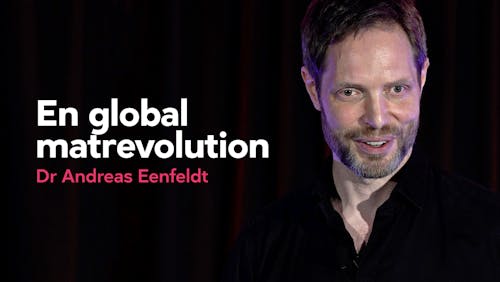


















































 Läkarutbildningen sträcker sig över mer än ett årtionde och man uppmärksammar nästan inte näringslära eller den lika kniviga frågan om hur man går ner i vikt. Läkarutbildningen inkluderar ett förutbestämt antal timmar vikta till näringslära och det varierar beroende på var du går din utbildning. Generellt brukar det handla om runt 10-20 timmar på fyra år. Jag utbildade mig vid University of Toronto och University of California, Los Angeles (UCLA) men min erfarenhet skiljer sig inte mycket från övriga utbildningar i Nordamerika.
Läkarutbildningen sträcker sig över mer än ett årtionde och man uppmärksammar nästan inte näringslära eller den lika kniviga frågan om hur man går ner i vikt. Läkarutbildningen inkluderar ett förutbestämt antal timmar vikta till näringslära och det varierar beroende på var du går din utbildning. Generellt brukar det handla om runt 10-20 timmar på fyra år. Jag utbildade mig vid University of Toronto och University of California, Los Angeles (UCLA) men min erfarenhet skiljer sig inte mycket från övriga utbildningar i Nordamerika. Lektionerna i näringslära på läkarutbildningen handlade om saker som biokemin bakom K-vitamin-metabolism eller att lära sig hur D-vitamin aktiveras i njurar och hud. Ja, det kanske kan kallas näringslära, men det handlar egentligen mer om biokemi. D-vitamin omvandlas till 25-OH vitamin D i njurarna och sedan aktiveras det i huden under solexponering till aktiva 1,25-OH vitamin D. Mycket användbar kunskap när man ska hjälpa folk att gå ner i vikt.
Lektionerna i näringslära på läkarutbildningen handlade om saker som biokemin bakom K-vitamin-metabolism eller att lära sig hur D-vitamin aktiveras i njurar och hud. Ja, det kanske kan kallas näringslära, men det handlar egentligen mer om biokemi. D-vitamin omvandlas till 25-OH vitamin D i njurarna och sedan aktiveras det i huden under solexponering till aktiva 1,25-OH vitamin D. Mycket användbar kunskap när man ska hjälpa folk att gå ner i vikt.















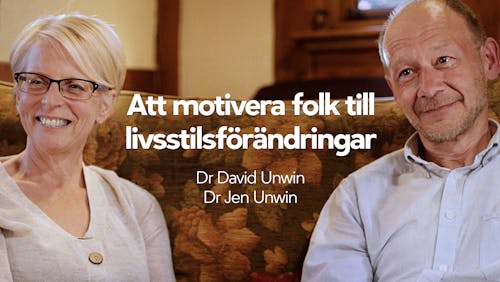


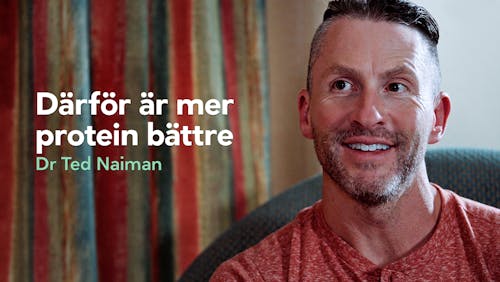






















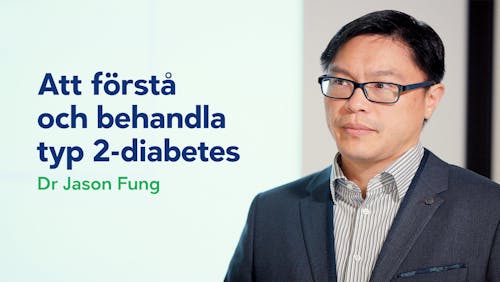



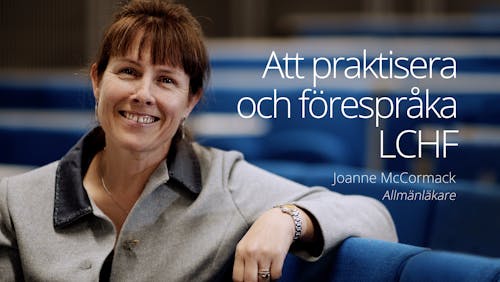









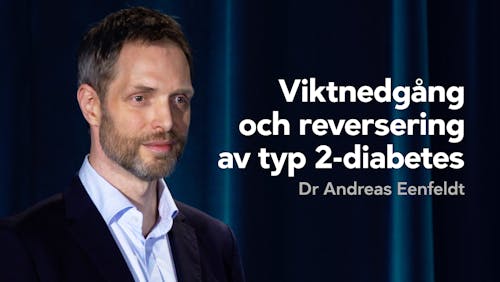

 Endokrinologen var förbryllad när han vägde mig och mätte min midja. Han kollade och dubbelkollade. Han skakde på huvudet när han sa att han aldrig sett en sådan helomvändning. Han noterade förändrngarna jag gjort, tog mig i hand och sa ”bra jobbat, fortsätt på samma sätt, du har hittat nyckeln!”
Endokrinologen var förbryllad när han vägde mig och mätte min midja. Han kollade och dubbelkollade. Han skakde på huvudet när han sa att han aldrig sett en sådan helomvändning. Han noterade förändrngarna jag gjort, tog mig i hand och sa ”bra jobbat, fortsätt på samma sätt, du har hittat nyckeln!”






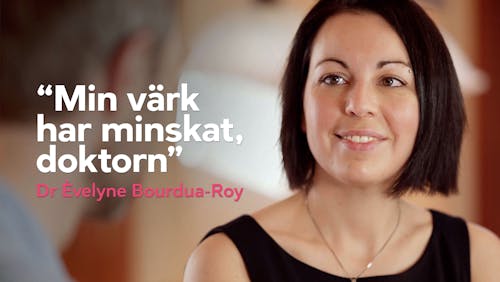






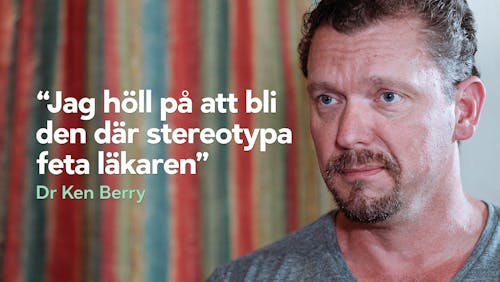

















 Kurser
Kurser Intervjuer
Intervjuer Föreläsningar
Föreläsningar Filmer
Filmer Matlagning
Matlagning Experter
Experter För läkare
För läkare Favoriter
Favoriter
























